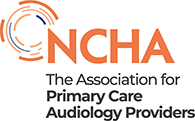01 August 2025
NCHA member update - 1 August
Latest news:
- Hearing uptake lags behind satisfaction rates
- Which? compares high-street hearing aid providers
- BSA consulting on aural care guidance
- Hospital audiology struggles to bring down waiting lists
- Regulator celebrates improved performance
- Hearing loss and loneliness ‘linked to cognitive decline'
- Ear to the ground
- Health policy
Hearing uptake lags behind satisfaction rates
The latest survey of hearing health in the UK reveals that people who use hearing aids experience an improvement in their quality of life as well as their ability to hear. Most hearing aid users wish they had sought help earlier.
The EuroTrak UK 2025 survey reports that the take-up of hearing aids in the UK has failed to keep pace with the rise in satisfaction with hearing aid technology and the quality of care. The adoption rate among people with self-declared hearing loss dipped slightly to 50.5%, compared with 52.8% in 2022.
The British Irish Hearing Instrument Manufacturers Association (BIHIMA), which released the results, said this was still high by international standards. The UK ranks third out of 10 countries, just behind Denmark and France.
NHS-funded hearing care continues to dominate in the UK, accounting for 69% of hearing instruments, the report said. The data also shows a positive shift for the private market, with a growing share of users obtaining devices through specialised hearing instrument stores, up from 16% in 2022 to 21% in 2025. Read the full story.
Which? compares high-street hearing aid providers
The consumer magazine Which? has compiled a table of the best hearing aid providers based on detailed responses from hearing aid wearers about their experiences. The survey also investigates how much they spent and what type of hearing aids they bought. Two providers were named Which? Recommended Providers (WRPs).
Joanna Pearl, health researcher and author of the report, told the NCHA: "Choosing the right hearing aid provider can be tricky - and potentially costly - for people with hearing loss. We surveyed 3,609 hearing aid users about their experiences, asking them everything from product range and comfort to aftercare and value for money, so we could recommend the very best options for our members."
The highest-scoring high street provider received an overall customer score of 86% and top ratings for its facilities and staffing, as well as the comfort of the hearing aids it provides.
BSA consulting on aural care guidance
The British Society of Audiology is consulting on a new document called Minimum Training Standards in Aural Care (including ear wax removal).
The BSA is looking for feedback from all UK professionals, practitioners and organisations providing hearing healthcare and ear wax removal services, including hearing aid dispensers and audiologists.
Our members provide more than 300,000 de-waxing appointments each year, helping people gain access to the support they need in safe clinical settings across the UK. We will be responding to the consultation. If you would like to provide feedback, please write to [email protected] by 16 September.
Hospital audiology struggles to bring down waiting lists
The latest waiting times for diagnostic activity show that NHS audiology is the test with the highest proportion of patients (nearly 43%) waiting six weeks or more to be seen. Total adjusted growth for audiology assessments was 7.7% year-on-year.
People waiting for ENT are also suffering long waits. The figures from NHS England on waiting times for all consultant-led elective care were 7.4 million in May, representing little change from the previous month. The latest referral-to-treatment data shows that ENT departments see just over half of patients within the 18-week target, with 626,238 incomplete pathways, ranking as the second poorest performing consultant-led elective care service after oral surgery, showing a slight improvement over the previous month.
Regulator celebrates improved performance
The Health and Care Professionals Council (HCPC), which regulates hearing aid dispensers and clinical scientists, has improved its performance, according to the latest Professional Standards Authority assessment.
The HCPC has met 16 of the 18 Standards of "good regulation", regaining two fitness to practise (FTP) standards and one standard linked to registration. The PSA commended the council for improvements in decision-making and risk assessments in FTP cases. The time taken to process international applications had decreased, even though the number of applications received during the review period "increased significantly", the report said.
The HCPC is still falling short on two standards, 15 and 18, concerning the quality and the speed of FTP investigations, and ensuring all those involved in a case are supported to take part effectively. Read more.
Hearing loss and loneliness 'linked to cognitive decline'
A large-scale European hearing study has found that older adults with hearing impairment who feel lonely are likely to experience faster cognitive decline.
A team from the University of Geneva (UNIGE) analysed data from 33,000 older adults across Europe. They identified three distinct profiles based on the degree of social isolation and perceived loneliness. The researchers found that hearing loss accelerates cognitive decline, particularly among individuals who feel lonely, regardless of whether they are socially isolated.
The findings highlight the importance of supporting the emotional needs of individuals with hearing loss to promote brain health, says the report.
Meanwhile, The Guardian reports on the links between hearing loss and social isolation, with advice from audiologists about the importance of protecting hearing as we age to stay engaged and preserve our brain health.
- Companies House has announced that from 1 April 2027 all limited companies, including small hearing care practices, must submit their annual accounts digitally and that more data will be published in the public domain in the future. Read more.
- Dr Jack Katz, central auditory processing disorder specialist and chief editor of seven editions of the Handbook of Clinical Audiology, has died aged 91. Read more.
- Shares in the Italian hearing health company Amplifon dropped after posting worse-than-expected quarterly results. Read more.
- The RNID welcomed three new members to its board of trustees. Julian Meekings has stepped down after ending his three-year term.
- The BSA released updated guidance on Acoustic Considerations for Audiology Clinics, following a minor amendment to the May 2025 document.
Primary care providers hopeful about 10 Year Plan
Healthcare providers continued to respond to the government's 10 Year Health Plan for England, generally welcoming its pledge to shift care from hospitals into the community and place new emphasis on neighbourhood health.
Patients will no longer need to see a GP to get a hearing test; instead, they can refer themselves to audiology directly through the 'My Specialist' section of the NHS app, in a move designed to reduce waiting lists and free up GP time.
The NCHA said: "We fully support the government empowering more audiology patients to self-refer. This will expand access to NHS primary care audiology and reduce the inequalities in access between people with the ability to pay and those who depend on the NHS."
Caroline Taylor, GP and clinical chair of the National Association of Primary Care, said it was "refreshing" to see optometry, audiology, dentistry and pharmacy mentioned in a government document. She added: "We know that audiology and optometry are all key things without which the community cannot manage. If they can't hear and see well, they really struggle."
Read the Clarity report on the 10 Year Plan, which includes responses from professional bodies and providers.
New regulation for NHS leaders
The government has announced proposals to make NHS leaders more accountable, including a statutory barring system for those who commit serious misconduct.
The new proposals follow a public consultation that received more than 4,900 responses, which will help shape a regulatory system for board-level directors.
The government said it would give new powers to the Health and Care Professions Council (HCPC) to disbar NHS leaders in serious misconduct cases. The HCPC welcomed the announcement, saying: "We will work closely with the government, senior NHS leaders, representative bodies, and the wider sector, as the legislation is developed. It is essential that the new disbarring process has the right levels of funding, resourcing, and independence to help keep patients safe."
The move follows reviews by Tom Kark KC, General Sir Gordon Messenger, and the Infected Blood Inquiry, all of which called for more transparent and accountable leadership.
Doctors' strike ends, but conflict continues
The British Medical Association has agreed to resume negotiations with Wes Streeting after talks broke down. After a five-day walkout, which finished early on 30 July, Streeting wrote a letter to the union saying it had "squandered the considerable goodwill" of the government in its latest decision to walk out.
Shortly after the election, Mr Streeting reached a deal with resident doctors for a 22% increase in pay over two years, and a further 5.4% average rise this year. However, the BMA renewed its action, arguing that doctors' pay was still a fifth lower than it was in 2008.

Press enquiries
Media enquiries should be directed to [email protected] or call 020 7298 5110.
We are happy to put you in touch with our expert policy advisers who can comment on a variety of issues.
You can also follow us on Twitter and LinkedIn.

 Your hearing and aural health
Your hearing and aural health  Commissioners and Policymakers
Commissioners and Policymakers  Member support and guidance
Member support and guidance News and views
News and views
 Hearing map
Hearing map
